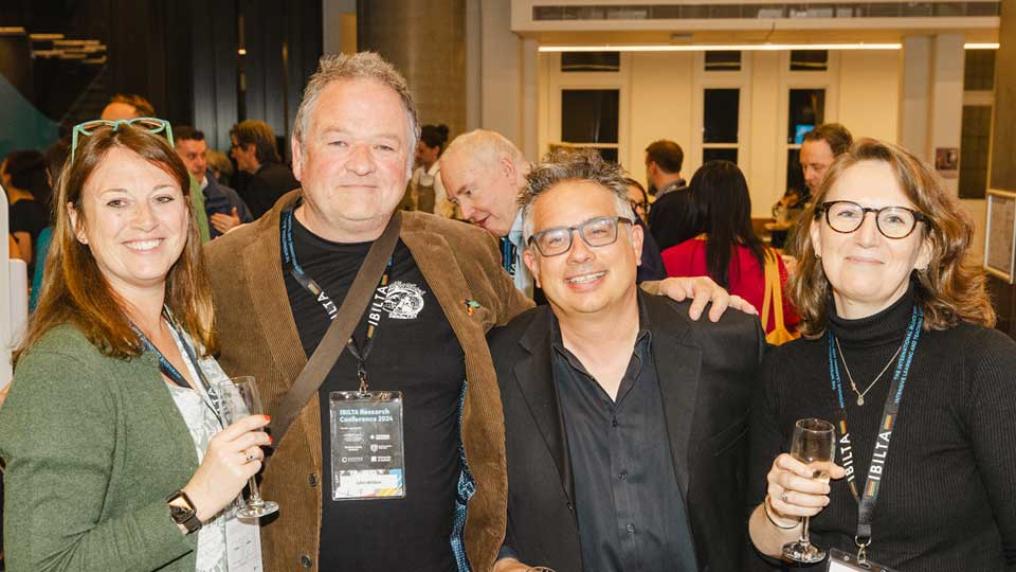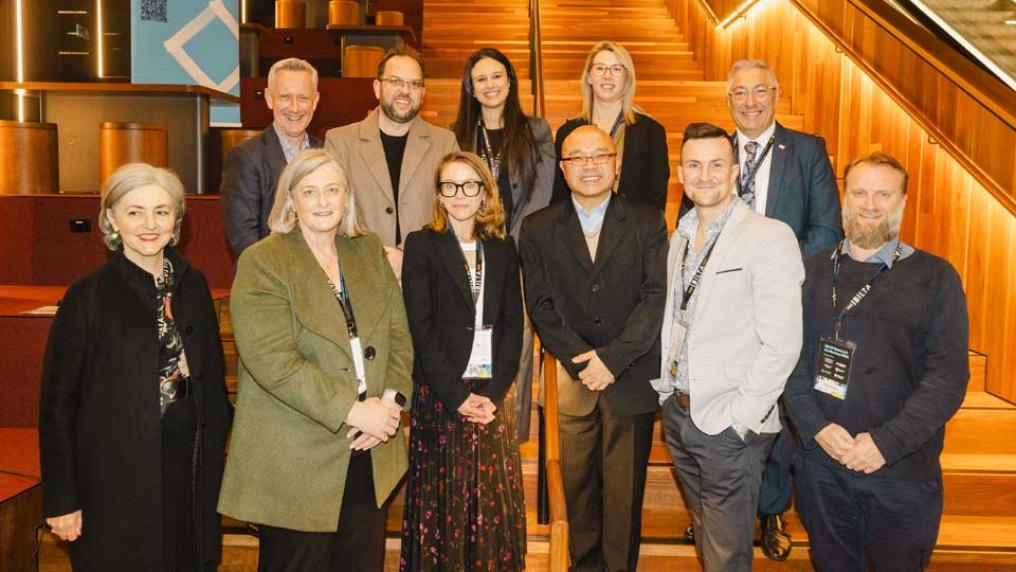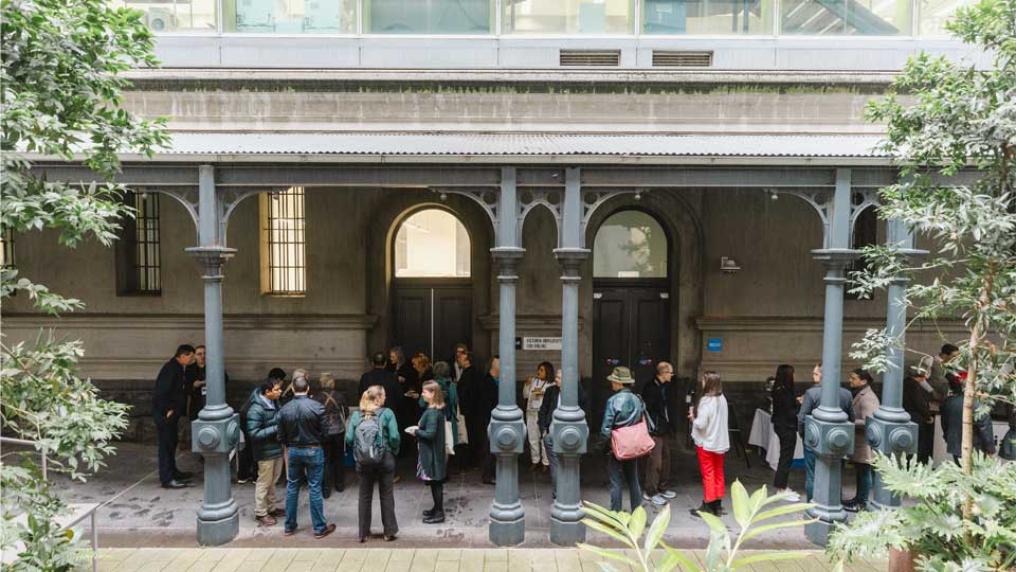Themed 'University Built Better - the Block and the Future of Higher Education', the conference brought together representatives from seven block-teaching universities, including from the United Kingdom and the United States.
It was the third International Block Intensive Learning and Teaching Association (IBILTA) conference, with two previous annual conferences held online.
VU Senior Deputy Vice-Chancellor and Chief Academic Officer, Professor John Germov opened the conference, paying respect to the deep knowledge practices of the Peoples of the Kulin Nation, the Traditional Owners and Custodians of University land in Melbourne.
Reflecting on six years of the VU Block Model, Professor Germov said "one of the best things we did was to embed a research approach; and we've seen that retention, success, and completion rates have gone up; and overall student satisfaction has increased."
"Even to this day we're looking to see how we can improve both the model and its delivery, and also the support of our staff," he said.
That continual improvement in service of students and educators continued throughout the conference, with talks, workshops, panel discussions and poster displays on research dedicated to enhancing all aspects of learning and teaching.
How are universities built better?
In a lively panel discussion chaired by VU Vice-Chancellor Professor Adam Shoemaker, Professor Steve Hayward from Colorado College, who co-directed the award-winning Block Plan documentary, explained that, more than a timetabling move, "what [block] really is, is a philosophical approach to teaching and learning."
And innovation can happen not just in your approach to the material, but your approach in thinking about the mode of curriculum delivery itself.
Any kind of block plan school always has a pocket of resistance. It's like, 'why are we doing this?' but I think that that resistance is, in some way, the engine of innovation. That interrogation of the mode of doing it," Professor Hayward said
It's far from a one-size-fits-all, and Dr Ellen Buck, Director of Learning and Teaching at University of Suffolk, explained that course teams learned that you can't "lift, shift and squish' their existing curriculum into a block pedagogy."
"It doesn't work. You've got to re-cut the pie; if you re-cut the pie you can do everything differently," Dr Buck said.
You might have individual blocks doing theory, but the practice runs throughout the whole academic year. So, if you think differently, it's not impossible. You have to be strong enough to push back and consider and re-design."
VU Associate Professor John Weldon asked "how do you maintain that revolutionary, malleable, open, flexibility in the face of an institution, globally, that we're in, that desires conservatism? How do you stop it ossifying, how do you keep it fresh?"
Dr Buck said "It's about the students we're serving. And the day we stop listening to them is the day you stand still."
Building a community of practice
University of Montana Western's Professor Bethany Blankenship, reflected on the first year of block implementation at Montana Western in 2005; while the closing keynote was given by Dr Amanda Muscat from VU, who examined effective block teaching and learning at a micro level, showcasing innovative approaches to active learning that can reshape teaching practices on the ground.
On the opening night of ILBILTA, Victoria University also launched the VU Block Model Academy.
Senior Lecturer and IBILTA Director Kathleen Raponi said the conference was a significant milestone.
Our goal was to create a conference which enables intellectual exchange on block teaching practices and builds a community of practice. The enthusiastic participation and high-calibre presentations exceeded our expectations."
"The success of this conference underscores the power of collaboration and shared knowledge in driving progress. It's been inspiring to see such a diverse group of experts come together to explore and advance the future of block teaching," Ms Raponi said.
Learn more about IBILTA and the VU Block Model Academy.









